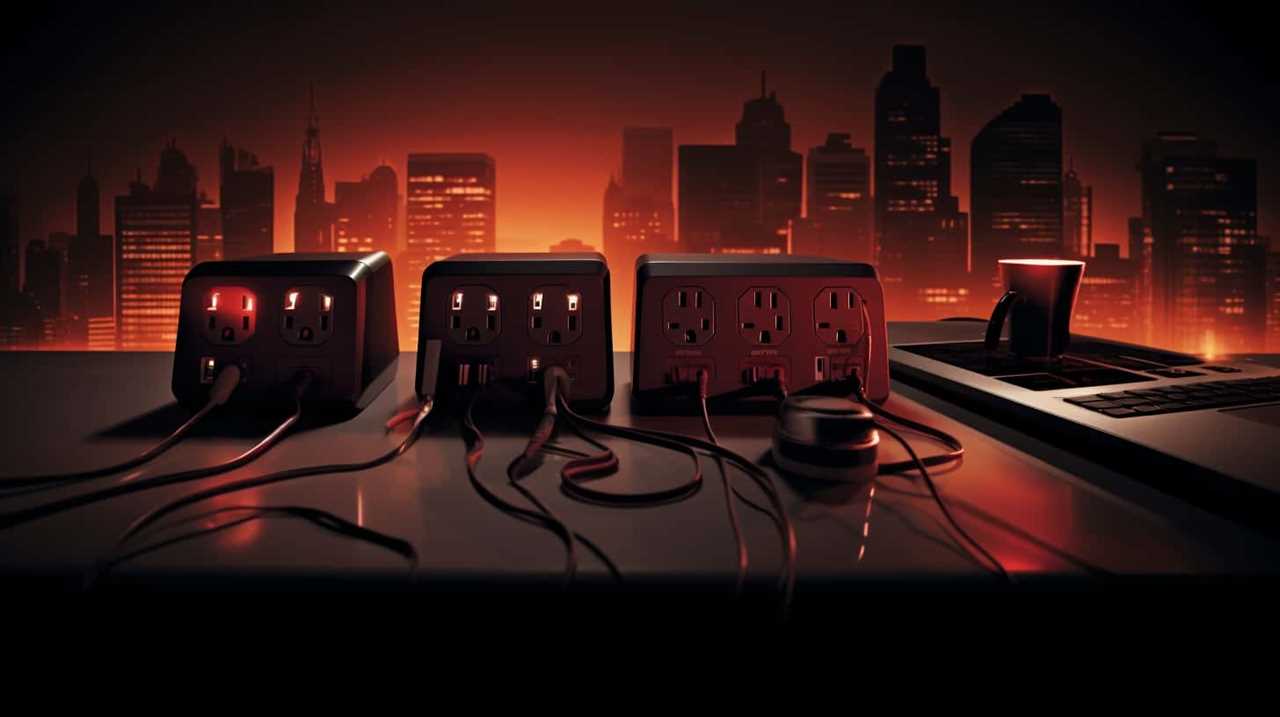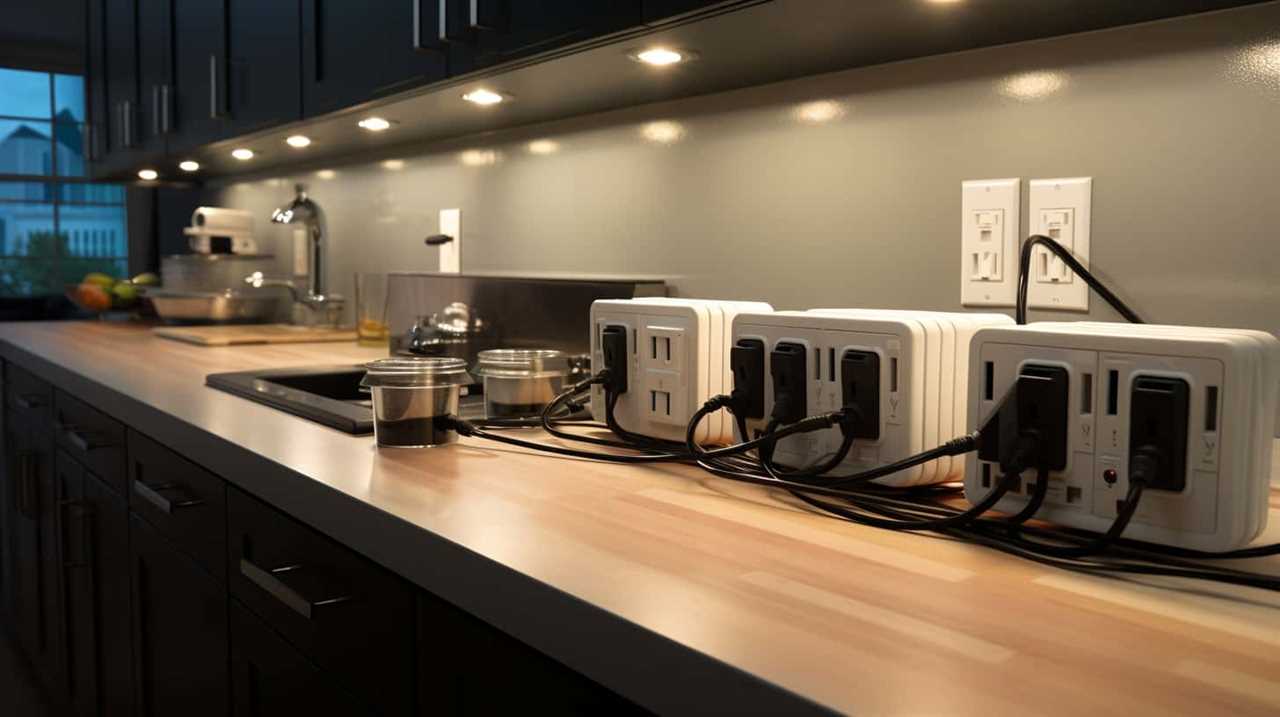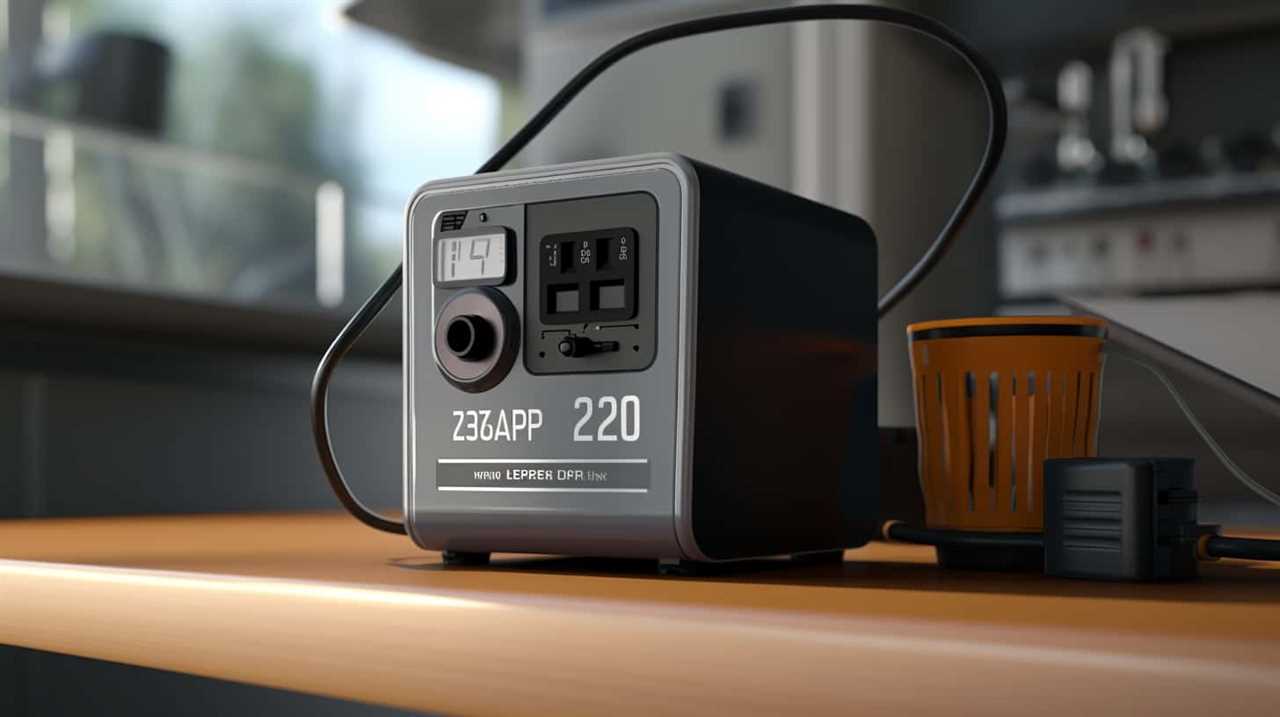We have all enjoyed the convenience and effectiveness of modern appliances. Have you ever thought about why appliances with a metal casing need to be grounded?
In this article, we’ll dive into the technicalities of electrical safety standards, the prevention of electric shock, protection against electrical fires, and minimizing the risk of appliance malfunctions.
We’ll also explore how earthed metal cases comply with building codes and regulations.
Get ready to master the importance of earthing in our everyday lives.

Key Takeaways
- Appliances with metal cases need to be earthed to prevent the build-up of excess voltage.
- Earthed appliances with metal cases reduce the risk of electric shock and protect against electrical fires.
- Proper grounding ensures the proper functioning of electrical equipment and compliance with safety regulations.
- Earthed appliances with metal cases protect individuals from electrical accidents, minimize the risk of electrocution, and promote a safe working environment.
Electrical Safety Standards
As we delve into the importance of grounding appliances with metal cases, it’s crucial to understand the role of electrical safety standards.
Electrical grounding is a fundamental aspect of ensuring the safety of both individuals and electrical equipment. Grounding requirements have been established to minimize the risk of electric shock and protect against electrical fires.
These standards outline the necessary procedures and specifications for properly grounding appliances with metal cases. By adhering to these requirements, we can effectively redirect electrical currents to the ground, preventing the accumulation of dangerous electrical charges.
This not only ensures the safety of users but also prolongs the lifespan of the appliances. Understanding and implementing these standards are essential for anyone seeking mastery in electrical safety and maintenance.

Prevention of Electric Shock
To ensure the prevention of electric shock, it’s essential for us to understand and adhere to electrical grounding requirements outlined in electrical safety standards. Grounding benefits both the safety of individuals and the proper functioning of appliances. Here are some key reasons why grounding is important:
- Protection against electrical shocks: Grounding provides a safe path for electrical current to flow into the earth, preventing the buildup of dangerous voltages.
- Reduction of electrical noise: Grounding helps to minimize electrical interference or ‘noise’ that can affect the performance of electronic devices.
- Enhanced equipment operation: Proper grounding ensures that electrical currents are distributed evenly, improving the efficiency and lifespan of appliances.
- Mitigation of fire hazards: Grounding reduces the risk of electrical fires by preventing the accumulation of excessive electrical energy.
Understanding the concept of grounding and its benefits is crucial in maintaining electrical safety and preventing electric shock incidents. By ensuring proper electrical conductivity and adhering to grounding requirements, we can minimize the risk of electric shock and protect both ourselves and our appliances.
Protection Against Electrical Fires
Grounding appliances with metal cases plays a vital role in protecting against electrical fires by dissipating excessive electrical energy. When an appliance isn’t properly grounded, there’s a risk of electrical faults occurring, which can lead to overheating and potentially cause a fire.
By connecting the metal case of the appliance to the earth, any excess electrical energy is safely discharged, preventing the build-up of heat and reducing the risk of fire. This is especially important in appliances with metal cases, as the metal can conduct electricity and become a potential fire hazard if not grounded properly.

Fire prevention is a top priority when it comes to electrical safety, and the importance of grounding can’t be overstated in ensuring the protection of both people and property.
Minimizing the Risk of Appliance Malfunctions
To minimize the risk of appliance malfunctions, we should regularly inspect and maintain the electrical components of appliances with metal cases. By ensuring proper appliance maintenance, we can prevent potential hazards that may arise from faulty electrical systems.
Here are some grounding techniques and maintenance practices to consider:
- Regularly check the power cords for any signs of wear or damage, such as fraying or exposed wires.
- Clean the appliance’s vents and filters to prevent dust accumulation, which can lead to overheating.
- Inspect the plugs and sockets for loose connections or signs of corrosion.
- Test the grounding of the appliance using a multimeter to ensure its effectiveness.
By following these steps and conducting routine maintenance, we can significantly reduce the risk of appliance malfunctions and promote a safer electrical environment.

Compliance With Building Codes and Regulations
Compliance with building codes and regulations ensures the safe installation and operation of appliances with metal cases. It’s crucial to adhere to these requirements to minimize the risk of electrical hazards and ensure the protection of users.
One important aspect of compliance is the insulation requirements. Building codes specify the minimum level of insulation needed to prevent electrical shock or short circuits. This helps to maintain the integrity of the electrical system and prevent any potential malfunction.
Additionally, grounding system installation is another key aspect of compliance. It involves connecting the metal case of the appliance to the grounding system, which provides a path for electrical current to flow safely to the earth. This prevents the build-up of excess voltage and reduces the risk of electric shock.
Frequently Asked Questions
How Do I Know if an Appliance With a Metal Case Needs to Be Earthed?
To determine if an appliance with a metal case needs to be earthed, we must consider the importance of grounding for electrical safety. Follow the necessary steps to properly ground the appliance.

Can I Use an Adapter or Extension Cord to Connect a Metal-Cased Appliance Without Earthing It?
Using adapters or extension cords for appliances without earthing is not recommended. Best practices for earthing metal cased appliances include proper grounding to ensure safety and prevent electrical shocks.
What Are the Potential Risks of Not Earthing a Metal-Cased Appliance?
Potential dangers of not earthing a metal-cased appliance include electric shock and fire hazards. Ensuring proper grounding is vital for electrical safety, as it prevents the buildup of excess voltage and diverts it safely to the ground.
Are There Any Specific Regulations or Guidelines for Earthing Appliances With Metal Cases in Different Countries?
International standards for electrical safety outline the importance of proper grounding in electrical appliances, especially those with metal cases. These guidelines ensure protection against electric shock and prevent potential hazards caused by electrical faults.
Can I Retrofit an Older Appliance With a Metal Case to Include an Earth Connection?
Retrofitting older appliances with metal cases to include an earth connection can enhance safety. However, it is crucial to consider the specific requirements and regulations to ensure proper installation and minimize electrical hazards.

Conclusion
In conclusion, appliances with metal cases must be properly earthed to ensure electrical safety standards are met. This is important in order to prevent electric shock and protect against electrical fires. Grounding these appliances also helps minimize the risk of appliance malfunctions. Additionally, proper grounding is necessary to comply with building codes and regulations.
By grounding these appliances, we create a parallel path for electrical current. This allows any potential faults or surges to safely dissipate into the earth. In doing so, we keep both people and property out of harm’s way.









